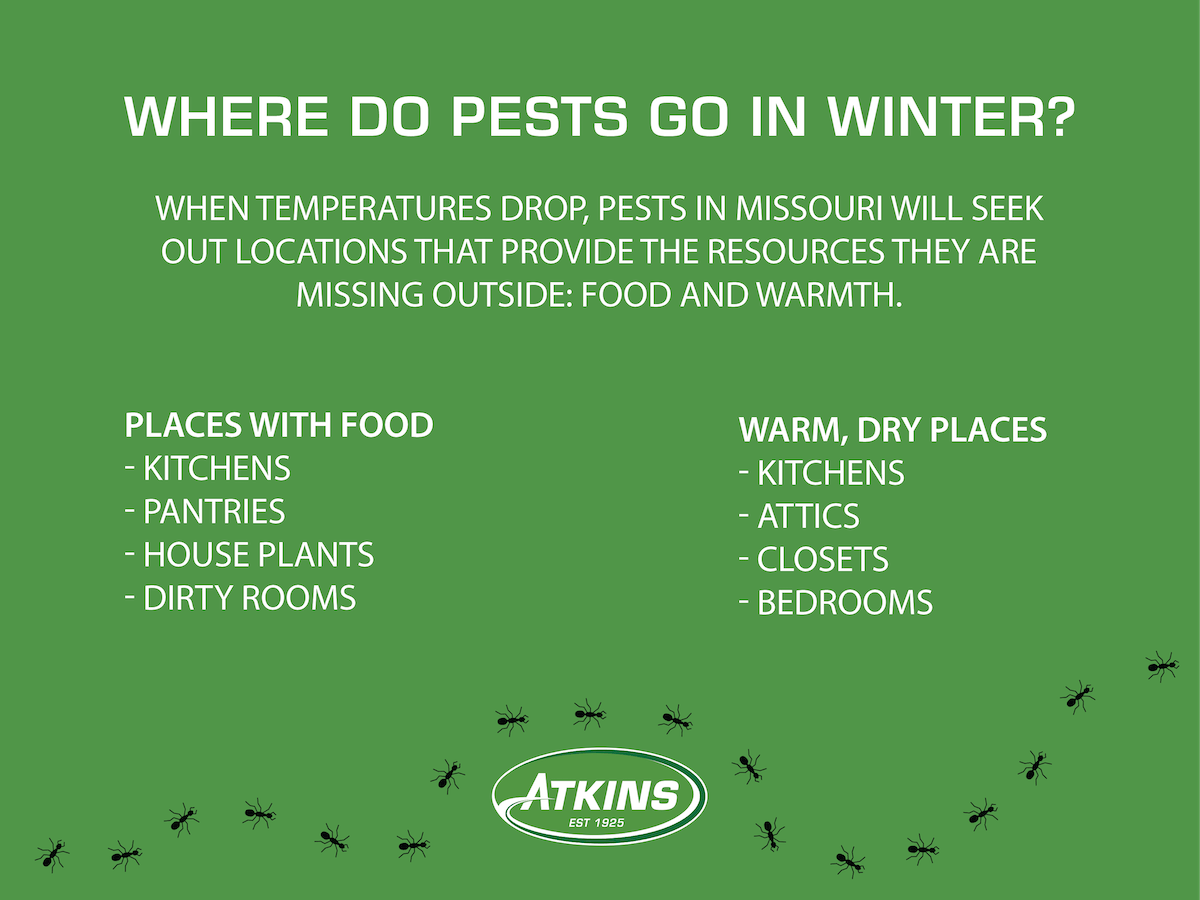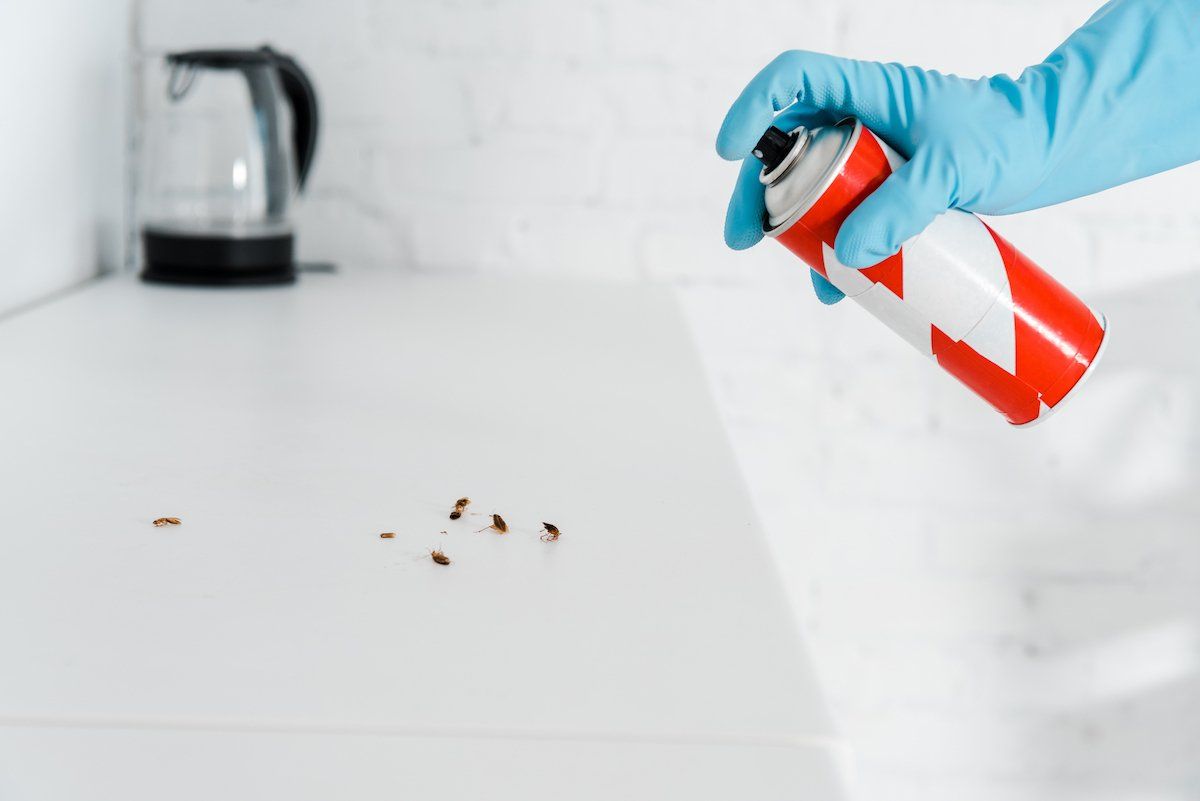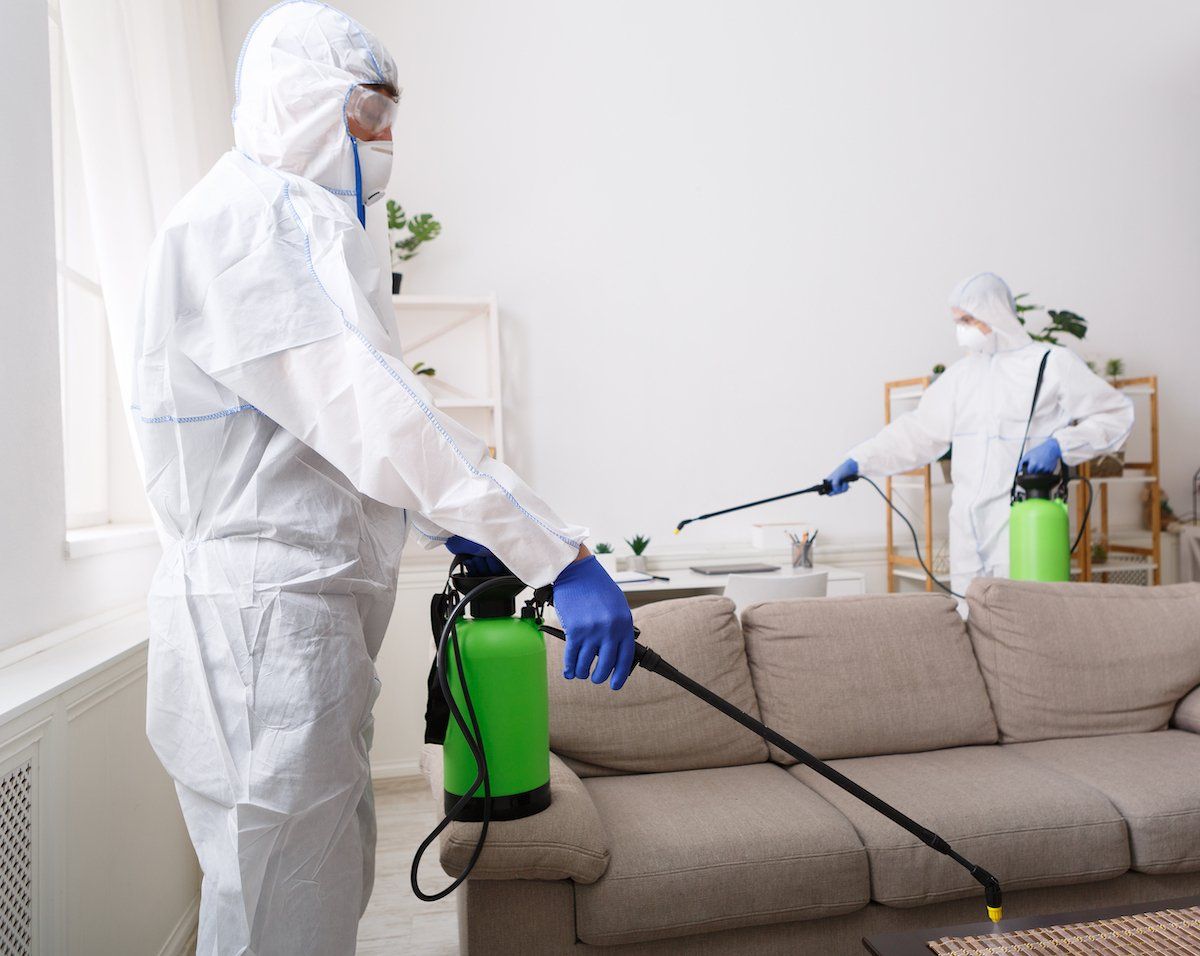GET A FREE QUOTE TODAY - CALL US (573) 874-5100
What Happens To Pests During Mid-Missouri's Winters?
Missouri Winters Can Be Difficult for People & Pests. Learn Where You Can Expect to See Pests This Winter.
As someone who lives in Mid-Missouri, you don't need any reminding how bitterly cold it can get in the winter. Temperatures can drop well below freezing. Ice and snow can put both our bodies and homes under a lot of stress. They can also impact the lives of Missouri insects. Atkins is helping mid-Missouri residents protect their homes from winter pests.
Where Do Pests Go In the Winter?
Pests that successfully survive cold temperatures generally take cover wherever they can to steer clear of the elements. Insects may take up residence under rocks, logs, leaves, or hide in holes inside trees. Others go looking for warmer spots, such as your home or business. You might love relaxing in a warm home but you certainly don’t want pests to join you.

How Does Cold Weather in Missouri Affect Insects?
What happens with bugs inside your home in the winter?
If you find insects in your home, there’s a good chance they’ve multiplied. If you are concerned about a potential pest problem, you can search a few different places in your home where bugs are most likely to hide. Bugs will make their way to the warmest areas of your home and will also seek out food sources. Their favorite spot? Your kitchen. Be sure to wipe down your counters and clean your floors regularly. Store food in air-tight containers to keep pests out.
Do Insects Die in the Winter or Hibernate?
Insects are cold-blooded. Because they can’t generate their own heat, they tend to congregate together or seek out warm areas. However, not all insects seek out the same methods for staying warm and fed. Learn more about the winter habits of Missouri pests below.
What happens to cockroaches in the winter?
Cockroaches tend to remain outside in logs or trees during the winter but will come inside your house if they are having difficulty finding food or keeping warm. Taking precautions to keep food sources sealed, your home clean, and sealing up entry pathways can keep them from overtaking your home.
What becomes of ants during the winter?
Ants are well-skilled at weathering the winter, thanks largely to their biology. Ants have an internal mechanism that causes their bodies to significantly drop in temperature as the outdoor temperatures fall. They simultaneously start to conserve energy by operating slower than usual during winter. Ants rely on stored carbohydrates, protein, and fats for nutrition during the coldest months of the year.
Do bed bugs become dormant in the winter?
Bed bugs are less active in the winter, much like other insects are. During this time of the year, this inactivity means that they tend to breed and feed less often, resulting in you noticing them a lot less than you typically would. They don’t necessarily stop biting, so remain vigilant if you notice off bit marks or small stains on your sheets.
Do termites survive the winter?
Termites are a bit different from other pests in that they don't generally take breaks, no matter how cold it gets. Termites tend to change their behaviors during the winter, though. The cooler the temperatures get, the deeper subterranean termite colonies tend to dig down into the ground to pursue warmth. If they don't time their digging just right, then termites have the potential of dying at temperatures of 25 degrees Fahrenheit or less. This is why termites love warm homes where they don’t have to work so hard for a food source.
How To Tell If I Have Termites?
Some of the telltale signs that you may have a termite infestation include:
- The appearance of small pinpoint holes in your drywall
- Floorboards squeak or start buckling
- You notice that wood surfaces sound hollow when you knock on them
- Drywall drops or discolors
- Paint on the walls peels or takes on an appearance of water damages
- Tiles loosen
If you notice any sign of termites, call Atkins right away. Termites can cause thousands of dollars of damage in your Missouri home and your homeowner's insurance may not cover the cost.
Don’t Forget About Pest Control During Harsh Mid-Missouri Winters
Homeowners often make the mistake of assuming that the cold will kill any insects that are lingering in their homes as winter begins. That can be a costly assumption if the temperature doesn't drop the way you expect or pests infesting your home don't respond as adversely to the low temperatures.
Having a Columbia, Mo professional pest exterminator like Atkins ensures that you will have peace of mind no matter which pests try to invade your home when winter weather sets in here. If you do notice some new unwelcome winter inhabitants, call Atkins to prevent any damage to your home or health.






